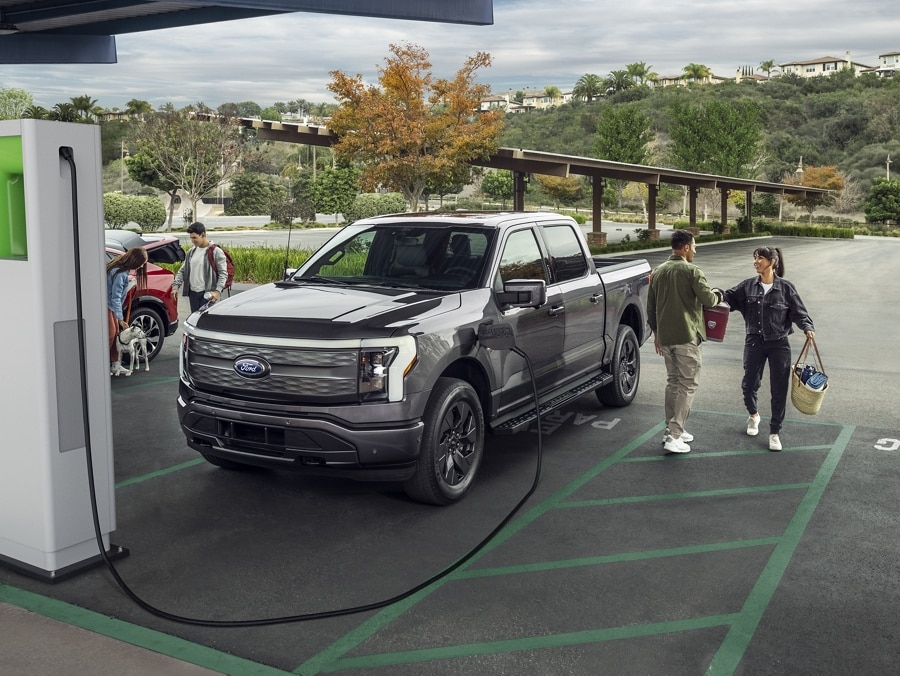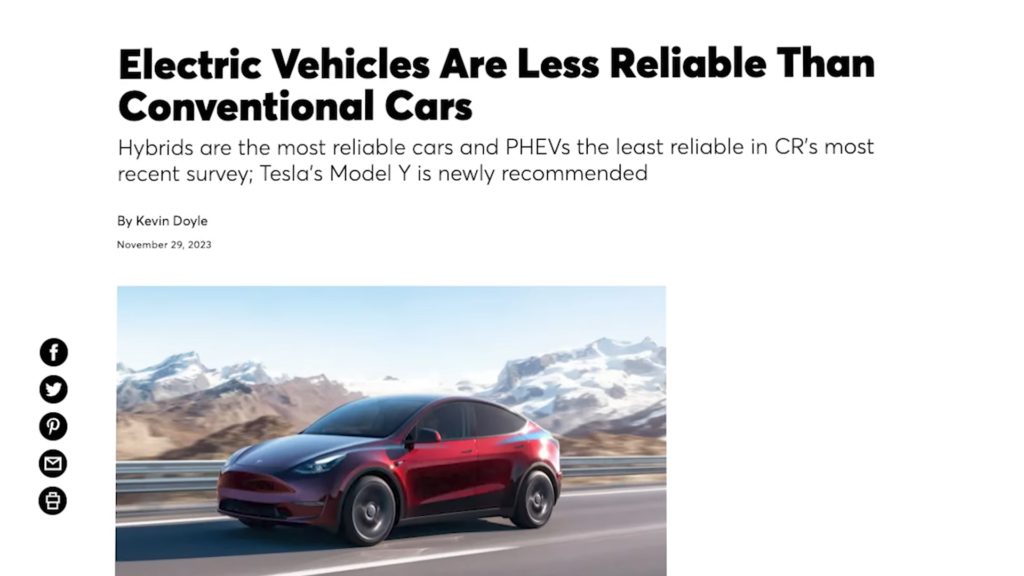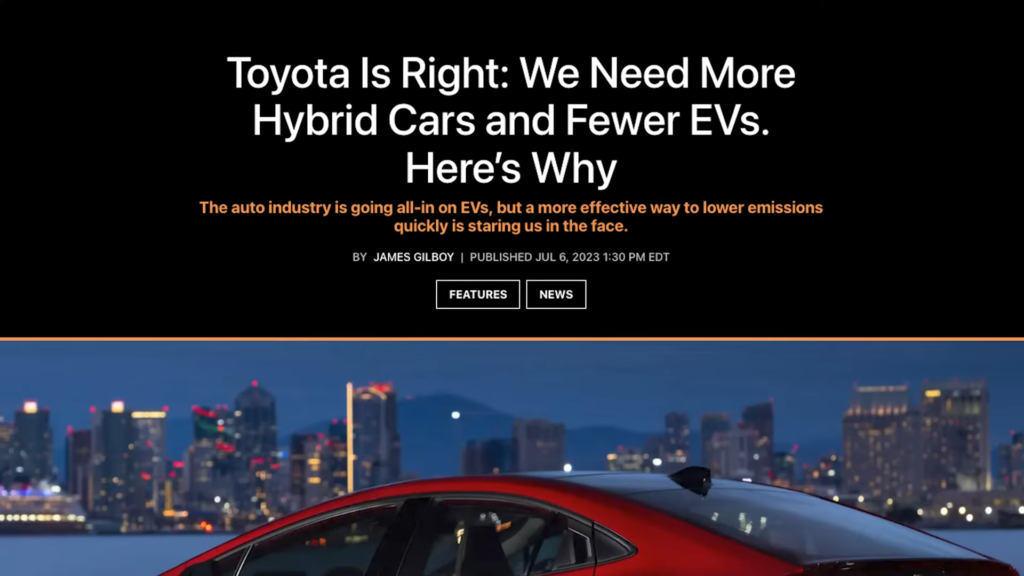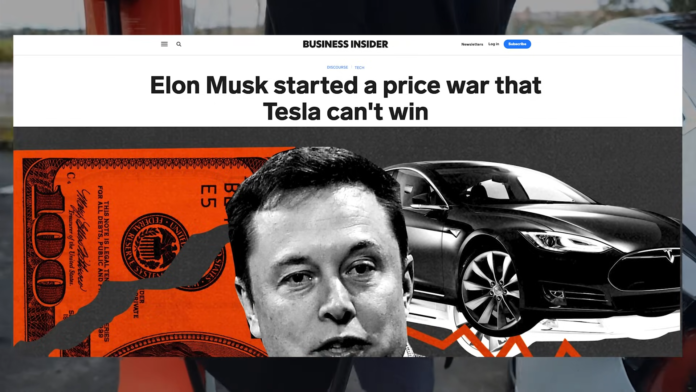In the ever-evolving landscape of the automotive industry, the electric vehicle (EV) market has become a focal point of innovation and disruption. However, recent developments suggest that the road for EVs might be bumpier than anticipated.
EV Manufacturers Facing Turbulence
The EV market, once hailed as the future of transportation, is now experiencing turbulence. Major players like Ford, GM, and even Tesla are grappling with unforeseen challenges. Ford, for instance, has found itself on a rocky financial path, with an estimated loss of $4.5 billion on EVs. The situation has led to a 50% cut in the production of the F-150 Lightning, signaling a wavering demand for electric pickups.

GM’s Struggles and Tesla’s Decline
General Motors, another automotive giant, is not immune to the headwinds. The harsh reality of EV depreciation is casting a shadow over the market. Even Tesla, renowned as the king of EVs in the U.S., is witnessing a decrease in demand. It prompts us to question whether this is an isolated issue for specific manufacturers or a systemic challenge embedded in the current state of the EV market.
Predictions Point to a Slowdown
Estimations for 2024 indicate a slowdown in the growth of the EV market. Factors contributing to this deceleration include pricing, available options for purchase, and a significant reduction in government subsidies. The latter, in particular, is expected to make EVs less appealing overall. The landscape appears to be shifting, and companies that once bet big on EVs are recalibrating their strategies.

Herz’s U-Turn on EVs: A Sign of the Times
A striking example of this recalibration is Herz, the renowned rental car company. In 2021, Herz announced ambitious plans, placing orders for 100,000 Tesla Model 3s and expressing a commitment to EVs. However, the honeymoon with EVs was short-lived. By October 2023, Herz announced a scaling back of its EV investments, citing Tesla’s price cuts and higher-than-expected repair costs as deterrents.
Unveiling Herz’s Dilemma
Herz currently faces the challenge of depreciating EVs, particularly the 35,000 Teslas in its fleet. The resale value has taken a hit, and the rental company anticipates a significant loss. The situation reflects broader concerns about the value retention of EVs, especially when confronted with abrupt market shifts such as price reductions.
The Impact on the Used EV Market
The decision by Herz to sell approximately 20,000 EVs, primarily Teslas, could potentially reshape the used EV market. This influx of vehicles could lead to further price declines, presenting a double-edged sword. While it’s a boon for buyers seeking discounted Teslas, recent purchasers or Tesla itself might face the repercussions of rapid depreciation.
The Reliability Conundrum
Beyond the financial intricacies, Herz’s move highlights a glaring issue in the EV realm: reliability. Repairing an EV post-collision is reported to cost 56% more than fixing traditional internal combustion vehicles. The repair time is also 25% longer. These statistics underscore a critical challenge for the EV market — the complexity and cost of repairs.

EV Demand: A Larger Predicament
Herz’s decision to divest from EVs also hints at a broader challenge — lackluster demand. A study from the previous year indicated that many EV owners switch back to gas vehicles due to reasons like infrastructure concerns, pricing, and range limitations. Now, it seems that even the rental market is showing reluctance, raising questions about the broader appeal of EVs among consumers.

What’s Next? Navigating Uncharted Territory
The landscape of the EV market is evolving, and these recent developments force us to confront the realities of this transformation. As we navigate uncharted territory, questions about the future of EVs, their reliability, and their market dynamics linger. The journey to widespread EV adoption might be more challenging than anticipated, but it’s crucial for manufacturers and consumers alike to adapt to this ever-shifting terrain.
Frequently Asked Questions (FAQs)
What led to Ford’s significant financial losses in the EV market?
Ford faced substantial financial losses in the EV market, driven by waning EV demand and a 50% cut in the production of the F-150 Lightning.
How has Tesla been affected by recent developments in the EV market?
Despite being a leader in the EV market, Tesla has also witnessed a decrease in demand, indicating broader challenges in the industry.
What factors are contributing to the predicted slowdown in EV market growth in 2024?
The anticipated slowdown is attributed to factors such as pricing, available options, and a reduction in government subsidies for EVs.
Why did Herz decide to scale back its EV investments, especially in Teslas?
Herz cited Tesla’s price cuts and higher-than-expected repair costs as reasons for scaling back its EV investments.
How does Herz’s decision to sell 20,000 EVs impact the used EV market?
The sale of 20,000 EVs, primarily Teslas, could lead to further price declines in the used EV market.
What does Herz’s move reveal about the reliability of EVs?
The decision by Herz to divest from EVs underscores the challenges in terms of the complexity and cost of repairs, highlighting a reliability issue.
What are the broader implications of Herz’s decision on EV demand?
Herz’s decision raises concerns about the broader appeal of EVs, indicating that even the rental market is showing reluctance.
How might the sale of 20,000 EVs impact Tesla Model 3 prices?
The sale of a significant number of Tesla Model 3s could potentially lead to further price declines, offering discounts to buyers.
What challenges does the EV market face in terms of repairs and reliability?
Repairing EVs post-collision is reported to be 56% more expensive and 25% longer compared to traditional internal combustion vehicles, highlighting challenges in repairs and reliability.
In light of recent developments, what does the future hold for the widespread adoption of EVs?
Recent developments underscore the challenges in the journey toward widespread EV adoption, prompting both manufacturers and consumers to adapt to the evolving terrain.
References:
Elon Musk started a price war that Tesla can’t win
Ford cuts F-150 Lightning production as EV demand softens
Toyota Is Right: We Need More Hybrid Cars and Fewer EVs. Here’s Why
Electric Vehicles Are Less Reliable Than Conventional Cars
Over Half Of EV Buyers Are Purchasing An ICE As Their Next Vehicle




